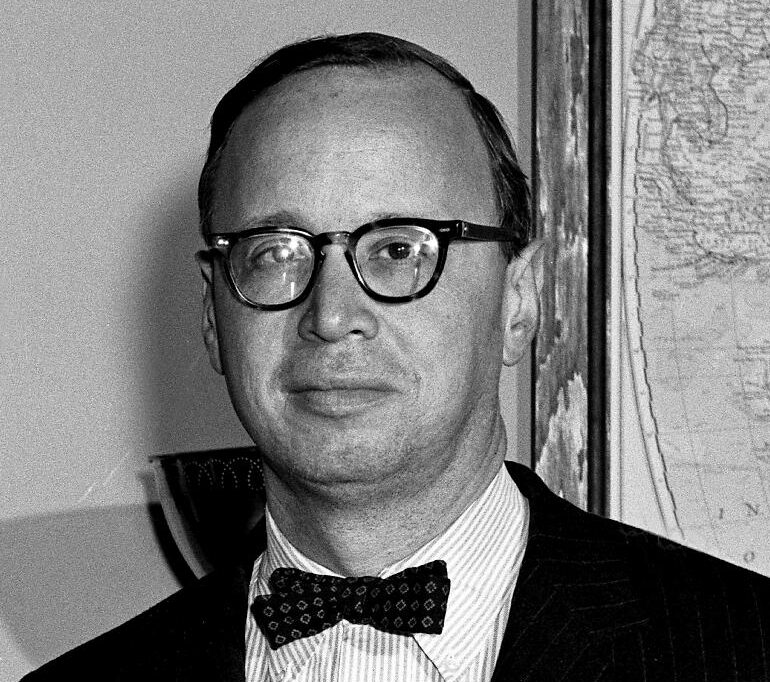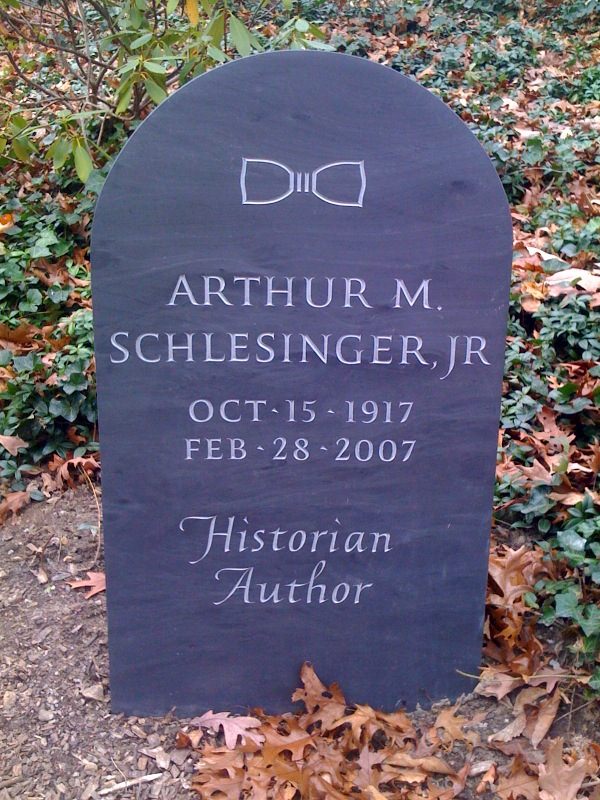
Arthur M. Schlesinger, Jr. (1917-2007)
Historian, Author, & Public Intellectual
Best known for being a Pulitzer Prize-winning author and historian, Arthur M. Schlesinger, Jr. was born on October 15, 1917.
Born in Columbus, Ohio to a family who’s father was already an influential American historian and professor, Schlesinger dedicated himself to academics and received his A.B. from Harvard in 1938 at the age of 20. When World War II began, Arthur’s fellowship at Harvard was interrupted. Upon failing a military medical examination, he was instead placed in the Office of War Information where from 1943-1945 he participated in a spy ring operated by the Office of Strategic Services (what would later become the CIA). In 1945 he published his first Pulitzer Prize-winning book, The Age of Jackson, which was based on his experiences in the OSS. Schlesinger then became an associate professor at Harvard in 1946 and a full professor in 1954.
In 1947, Schlesinger founded the Americans for Democratic Action together with First Lady Eleanor Roosevelt and Vice President Hubert Humphrey, among others. He was also the primary speechwriter for Governor Stevenson of Illinois during his campaign for presidency. It was on Stevenson’s second campaign that Schlesinger met Robert F. Kennedy. When Stevenson lost the nomination, Schlesinger supported John F. Kennedy’s nomination, which would begin a long relationship with the Kennedy family. He went on to occasionally help the Kennedy campaign as a speechwriter and he also wrote the book Kennedy or Nixon: Does It Make Any Difference?

When Kennedy won the election, he considered a few positions that Schlesinger might be appropriate for, but ultimately appointed him as Special Assistant to the President, where he worked as a speechwriter and on Latin American Affairs. Arthur was vehemently opposed to the Bay of Pigs Invasion, offering other alternatives to the President, yet he kept his feelings to himself and remained silent in Cabinet meetings- a decision he would later regret. When President Kennedy was assassinated, Schlesinger resigned from his position and penned A Thousand Days: John F. Kennedy in the White House, which in 1966 earned him his second Pulitzer Prize. He continued to be a loyal friend to the Kennedy family, working on both Robert and Edward Kennedy’s campaigns. During this time, Schlesinger wrote Robert Kennedy’s biography, Robert Kennedy And His Times. Throughout Nixon’s years in the White House, he remained an outspoken opponent of Nixon and was even placed on Nixon’s list of top 20 political opponents.
Schlesinger continued to speak out and remained a political activist for the rest of his life. He published over 30 works and in 2007, his sons posthumously published Journals 1952-2000, compilation of his diaries. In addition to his two Pulitzer Prizes, Schlesinger also received the Bancroft Prize and the Francis Parkman Prize in 1958 for The Crisis of the Old Order; the National Book Award in History and Biography in 1966 for A Thousand Days; the National Book Award in Biography in 1979 for Robert Kennedy and His Times; the National Humanities Medal in 1998 and the Four Freedoms Award in 2003.

Arthur M. Schlesinger, Jr. is buried at Mount Auburn in Lot 385 on Narcissus Path.
